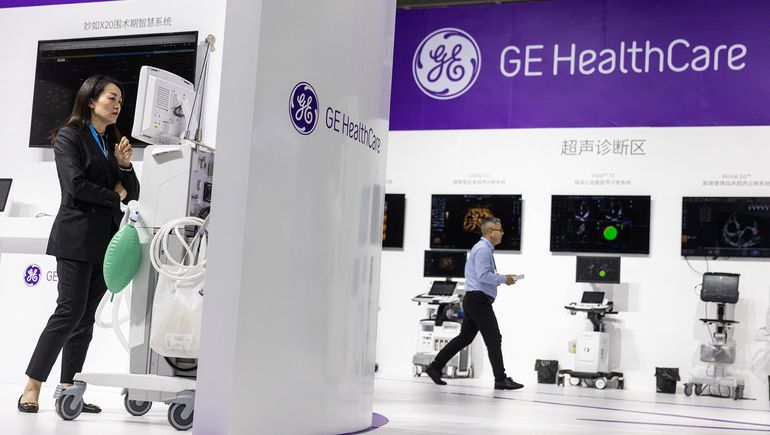By the numbers
Q3 revenue: $4.8 billion
5% year-over-year increase
Net income: $375 million
23% year-over-year decrease
Q3 trends
GE HealthCare grew sales year over year in the third quarter while weathering hospitals’ constrained budgets and China’s anti-corruption campaign.
“If you think about 2023, we had a highly volatile macroeconomic backdrop, and yet, the sales for our company have been quite resilient and ahead of our original expectations.” CFO Jay Saccaro told investors in a Tuesday earnings call.
Factors that helped the company included a backlog of orders, managing costs, and the fact that about half of GE’s business comes from recurring revenue, Saccaro added.
The CFO outlined plans to bolster the company’s margins, which declined to 7.8% in the third quarter from 10.6% last year. Pricing has been a “real area of focus,” and new products are introduced with higher margins. The company is also looking to manage spot buys of materials, logistics costs, and general and administrative expenses, Saccaro said.
China sales
CEO Peter Arduini said GE HealthCare is seeing solid demand around the world, including in China, where an anti-corruption campaign targeting hospitals is expected to slow sales for equipment-makers. Competitor Philips attributed a 9% fall in order intake to a slowdown in China in an earnings call last week.
Arduini said the company experienced a “limited impact” to orders and sales in China in the third quarter, and expects the fourth quarter to improve, with some lingering effects.
“We’re starting to see signs of the anti-corruption campaign stabilizing,” Arduini said.
AI devices
GE HealthCare highlighted some of its AI solutions during the investor call, such as a clinical decision support tool called CardioVisio that analyzes data from multiple sources to track disease progression of atrial fibrillation. The company started selling it in the U.S. in August.
When asked how the company plans to sell these solutions, Arduini said GE HealthCare is in the “early innings of AI monetization,” adding that the company plans to sell CardioVisio as a software-as-a-service model. Other AI tools, like its AirRecon DL for MRI image quality, can be integrated into the company’s machines.
“An MR system that has AirRecon DL on it has quite a bit a step up of margin over one that doesn’t,” Arduini said.
In the longer-term, the company hopes to expand CardioVisio to other indications like coronary artery disease and structural heart. GE HealthCare also wants to roll out similar solutions for oncology and neurology.
Forecast
GE HealthCare expects organic revenue growth of from 6% to 8% in 2023, unchanged from last quarter.
The company raised its expectations for adjusted earnings per share. It now expects a range of $3.75 to $3.85 per share, representing 11% to 14% year-over-year growth. It had previously forecast earnings per share of $3.70 to $3.85.

